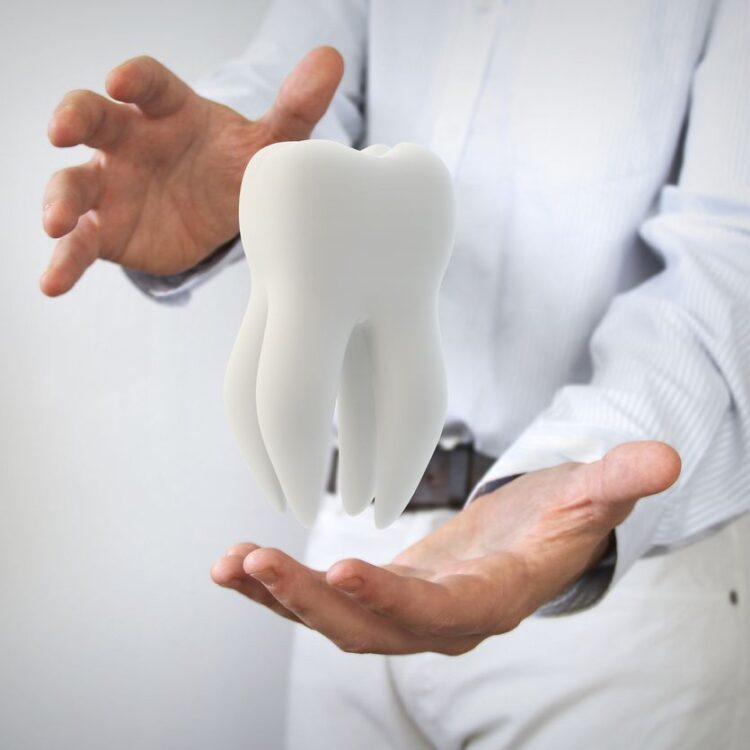
Did You Know These Habits Can Ruin Your Teeth?
Bulimia
This is a psychological eating disorder in which one has episodes of consuming a large quantity of food in one sitting. During these binges, you have no sense of control over their eating. They then purge, trying to get rid of the extra calories in an unhealthy way. The acid reflux during the induced vomiting causes the erosion of the teeth resulting in a change in the colour and texture of teeth. Your teeth may be weaker and more brittle than usual.
One tries inappropriate ways to lose weight such as:
- Vomiting
- Fasting
- Enemas
- Excessive use of laxatives and diuretics
- Compulsive exercising
The teeth can chip easily and may look ragged at the bottom. Sometimes they’ll turn a yellowish colour or take on a glassy appearance. Bulimia can also change the shape and length of one’s teeth.

Chewing on Ice Cubes
Some blenders have special blades to cut through ice cubes; imagine the effect of doing the same thing with your teeth! The force taken by your teeth and jaws to crunch through these ice cubes is far beyond what they’re designed to withstand. Using your teeth as a tool for what they are not meant for can be detrimental to them. Teeth are designed for smiling and eating, not for tearing tags off clothing, ripping open a bag of pretzels or unscrewing bottle tops. Misusing them will only lead to fractures, chips and cracks in them.
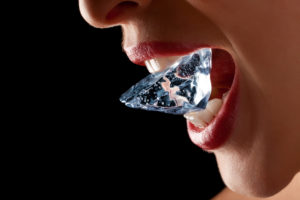
Misuse of Toothpicks
Toothpicks are created to remove food remnants stuck between the teeth. However, misusing toothpicks can cause enamel damage and scratches on the surface of the teeth. Also, shoving toothpick deep within the crack of your teeth causes the teeth to shift and form gaps. Aggressive use of tooth picks can cause damage to the gums and lacerate them.

Playing Without a Mouth Guard/Sports Guard
Mouth guards are an important piece of equipment that can protect your teeth from blows to the face and head. They reduce the risk of broken or lost teeth, lip cuts and other damage. Get your mouth guard now from the best dental clinic near you to avoid the risk of breaking your teeth.
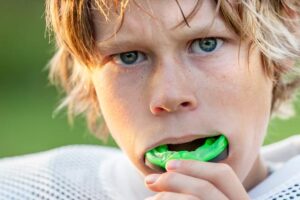
Binge-Eating
Binge-eating is never good for your health. It can lead to various health problems, including obesity, eating disorders, and poor dental health. The primary dental concerns with this involve eating unhealthy foods and when we binge-eat. Some bacteria present in the mouth can feed off leftover food particles and sugars between teeth. When bacteria feed on sugar, they produce acids that weaken the enamel, damaging your teeth and gums. Binge-eating also frequently occurs outside of our regular meal times, often late in the evening or at night. This may result in going to sleep with unbrushed teeth. Make sure to brush your teeth post dinner to prevent tooth decay during the night.

Consumption of Coffee/Soda
Serial Coffee or Soda Drinking are highly acidic. Sipping them throughout the day exposes your teeth to an increased level of acidity which is damaging and doesn’t give saliva a chance to neutralize it. Coffee leads to exposure of the mouth to sugars and its innate acidic nature creates havoc on your teeth. The constant exposure to sugar makes the enamel vulnerable, increasing the odds for decay. Additionally acidic drinks or beverages when sipped continually don’t permit the mouth to neutralize it. Sugary foods and drinks increase the risk of tooth decay. Some oral bacteria react with the sugar and carbohydrates present in the food remnants in the mouth and in the process produce acid which can cause cavities.

Grinding and Clenching
These nervous habits exert “parafunctional” (outside what’s normal) bite forces that can wear down teeth and cause small fractures and chips. Grinding can cause chipping or breaking of the teeth, as well as muscle soreness or joint pain. Due to stress and lack of good sleeping habits, teeth grinding may worsen and become more aggressive, which may wear the teeth down over some time. “You may also feel like you can’t open your mouth wide or may have pain on chewing.”
Bruxing: the dental term for tooth grinding as well as jaw clenching, exerts excessive bite forces that can result in tooth wear, fractures or looseness, jaw pain and other symptoms. It often occurs while people sleep. The wearing off, of the teeth is so drastic that the nerves of the teeth get exposed and warrant a root canal treatment. A night guard can help protect against damage caused by this method.
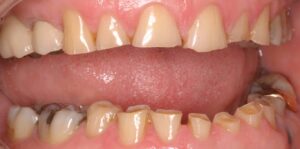
Utilizing the Wrong Toothbrush
Using a brush that’s not good for your teeth and gums, can cause wearing off, of your teeth and also cause your gums to recede. A small headed, soft-bristled brush is ideal and most preferred for cleaning your teeth. It’s not the force during brushing that matters but the technique. They need gentle cleaning. Brushing too forcefully and frequently, even with the right brush can damage teeth and irritate gums making them weak.
A gentle whisking is all that’s needed to break up bacterial plaque build-up on tooth surfaces. Ask your dentist about the proper technique if you’re not sure. Brushing too often can also be damaging over time. Brushing twice a day post breakfast and post dinner is sufficient.
Brushing your teeth twice daily removes plaque and keep the teeth clean. However, this can only be effective using proper technique. Use a soft-bristled toothbrush and brush your teeth gently in small, circular motions for about two to three minutes. Avoid brushing your teeth too hard to prevent any damage to the enamel and gums. When the teeth become badly eroded, it can lead to sensitivity.
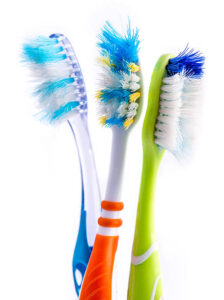
Nail Biting
Biting your nails does not only cause cracking, chipping, or wearing down of your teeth; it also causes jaw dysfunction. When biting your nails, your jaws are positioned at an unnatural angle by pushing your lower jaw out of line. Over time, this leads to temporomandibular disorder (TMD), a dental health condition characterized by painful jaws. Additionally, biting your nails can introduce harmful bacteria into your mouth. This nervous habit can chip teeth and impact your jaw. Putting your jaw for extensive stretches of time in a protruding position can put pressure on it, which is related to jaw joint dysfunction.
Also using your teeth as a tool for opening soda bottles and food packets can cause harm leading to their chipping or cracking.
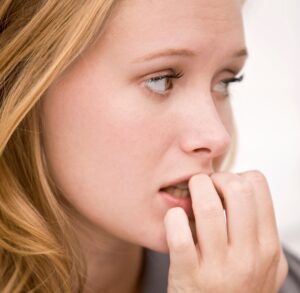
Inadequate Hydration
Proper hydration is an under-appreciated secret for healthy teeth. When brushing is not an option, drinking a glass of water helps wash away the food particles, bacteria, and acid from your mouth. Drinking water after consuming stain-causing foods (like red wine or coffee) will also rinse away the tannins and other stain-causing chemicals, keeping your teeth whiter and brighter.
Like your body, your teeth can also become dehydrated. This can be due to inadequate hydration or mouth-breathing. Proper hydration will keep your teeth and gums healthy and strong. Saliva is important to the oral health, as it neutralizes enamel-damaging acidity, thus neutralizing the pH and strengthening the enamel. Dry mouth increases your risk of enamel erosion, cavities, and bad breath.
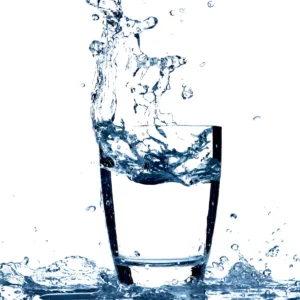
Note: It is important to get a six-monthly dental check-up done.
To book an appointment with us in, ‘Smile Delhi – The Dental Clinic’– call us on +91- 9811106871 or whatsapp Dr. Suprriya B Bhatia on +91-9811106377. You can also mail us on [email protected]
“We Care To Make You Smile”
Posted by: Dr Hema





























































